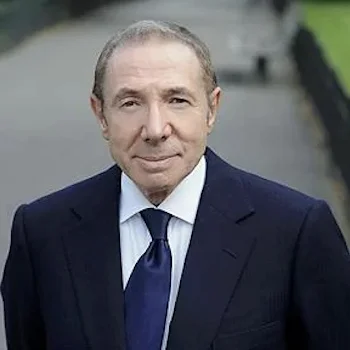
The Time Has Come: A Call for Leadership Fit for the Age
By any sober measure, the British Jewish community is facing a moment of profound reckoning. Not since the darkest days of the last century have we felt so viscerally the winds of hatred, the menace of marginalisation, or the failure of those who ought to lead. Our security is no longer assured by polite assurances; our belonging is no longer underwritten by the liberal order. We are entering a new era, and it demands a new kind of leadership.
And so, let us say what others have whispered: it is time to let go of the old ways.
Not out of disrespect — not for a moment would I dismiss the contribution of those who came before us, those who navigated Britain’s corridors of power with decorum and tact, those who dined at Whitehall and left with pledges and handshakes. They served, often admirably, in times less charged than our own. But ours is not a time for gentle nudges or elegant communiqués. It is a time for fortitude, vision, and ruthless clarity.
The world has changed. The nature of the threats we face has mutated. Antisemitism today wears a different mask — not that of the jackboot, but of the activist, the academic, the social media influencer. The slogans of yesterday’s far-right are now rephrased in the idiom of “justice.” The chants against Israel are chants against Jews, repackaged in progressive prose and cheered by those who, in other contexts, speak earnestly of “allyship” and “safe spaces.”
What, then, has been the response of our communal leadership? Too often, timidity. Too often, internal squabbles over precedence and prestige. Too often, the suffocating desire not to offend — not only the non-Jewish world, but each other. In some quarters, the mere suggestion of bolder coordination is greeted with bureaucratic horror: “But what will X think?” “That’s not our remit.” “Let’s not step on toes.”
Enough.
Now is not the time to protect reputations; it is the time to protect Jews. We cannot afford to let communal politics, ego, or status anxiety get in the way of clarity, purpose, and defence. In times of siege, it is not the smoothest talker or the best-dressed who leads. It is the one who sees the danger for what it is and acts accordingly.
What we need now is coordination — real coordination — across organisations, denominations, and generations. We need a leadership that does not wait for a consensus but builds one through force of purpose. The great challenge is not to find clever ways to express concern about antisemitism. The challenge is to build a defensive architecture robust enough to withstand the ideological onslaught coming from all corners: radical Islamists, hard-left identitarians, and emboldened neo-Nazis.
To meet that challenge, we must cultivate and elevate a new generation of leaders. Leaders unburdened by the politics of appeasement. Leaders who understand digital warfare as much as legal recourse. Leaders who know that the battle is being waged not only in Parliament, but in universities, on TikTok, in classrooms and town halls. Leaders who are not waiting for permission.
This is not a call to discard experience, nor to cast aside wisdom. But it is a call to recognise when continuity becomes complacency. It is to recognise that the virtues of the last era — gravitas, discretion, charm — while still valuable, are no longer sufficient. They are the tools of diplomacy, not defence. And we are in a moment that requires the latter.
What does such leadership look like? It looks like those who are willing to speak plain truths even when they are unpopular. It looks like those who prioritise Jewish safety over communal standing. It looks like those who refuse to outsource our voice to others — who understand that solidarity is precious, but self-advocacy is essential. It looks like those who say, without fear, that Zionism is not a dirty word, that Israel is not an embarrassment, and that Jews have a right not merely to survive, but to thrive.
The next generation is ready. It is emerging from campus battles, from grassroots campaigns, from new media, and from families who have finally had enough. But they will only rise if the communal space makes room — if the old guard understands that leadership is not a lifetime appointment but a responsibility that must be renewed by the demands of the time.
This, then, is the challenge. Not to reject our past, but to build a future that is equal to it. To do what is necessary, not merely what is comfortable. To serve not one’s ego, but one’s people.
We cannot afford sentimentality. We can no longer tolerate inertia. We must not be distracted by pomp or paralysed by protocol. We are Jews. We know what history demands.
And history is knocking.
